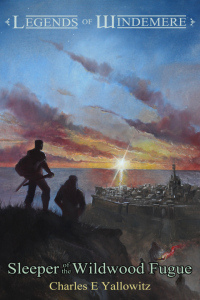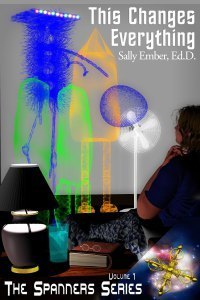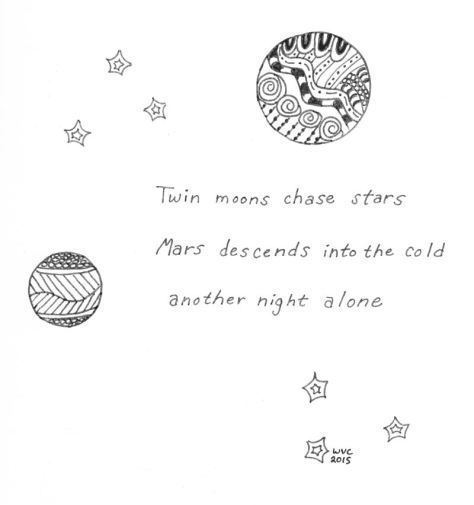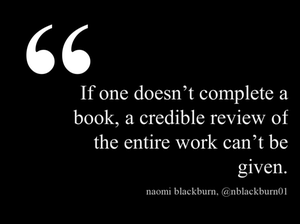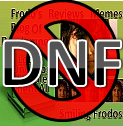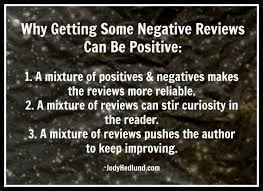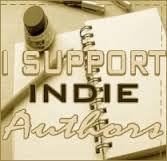Sally Ember's Blog, page 74
April 8, 2015
It’s Alive! Legends of Windemere: Sleeper of the Wildwood Fugue LIVE on Amazon Kindle!
Mazel Tov to Episode 9’s guest on *CHANGES* conversations between authors, Charles Yallowitz, for his latest release!
Watch conversations with my previous *CHANGES* guests any time: https://www.youtube.com/playlist?list=PLPbfKicwk4dFdeVSAY1tfhtjaEY_clmfq Learn more about and get yourself or recommend someone to be scheduled as a guest: http://sallyember.com/changes-videocasts-by-sally-ember-ed-d/
 Originally posted on Kylie Betzner:
Originally posted on Kylie Betzner:
It’s alive! It’s alive! Charles Yallowitz’s newest release Legends of Windemere: Sleeper of the Wildwood Fugue is LIVE on Amazon Kindle! Whoo hoo!
Blurb: The final champion stirs and reaches out to any who can hear her voice. Yet all who heed her call will disappear into the misty fugue.
Awakening their new ally is only the beginning as Luke, Nyx, and their friends head south to the desert city of Bor’daruk. Hunting for another temple once used to seal Baron Kernaghan, they are unaware that the game of destiny has changed. Out for blood and pain, Stephen is determined to make Luke wish he’d never set out to become a hero.
By the time the sun sets on Bor’daruk, minds will be shattered and the champions’ lives will be changed forever.
DUN DUN DUN!
Get your copy today at Amazon!
Read the Previous Volumes of Legends…
View original 263 more words
Filed under: Writing







The Perils of Potion Making
THIS was posted by my upcoming guest, puzzle-maker and author, Debbie Manber Kupfer, on 4/15/15’s Episode 27 of *CHANGES* conversations between authors, Wed., 10 – 11 AM EDT USA! Join us on Google+ or Youtube.
Watch conversations with my previous *CHANGES* guests any time: https://www.youtube.com/playlist?list=PLPbfKicwk4dFdeVSAY1tfhtjaEY_clmfq Learn more about and get yourself or recommend someone to be scheduled as a guest: *CHANGES* G+ HOA http://sallyember.com/changes-videocasts-by-sally-ember-ed-d/
 Originally posted on Paws4Thought:
Originally posted on Paws4Thought:
Camp NaNoWriMo is upon us and this month I’m determined to finish the first draft of P.A.W.S. 3. I was delighted a couple of days ago when an old friend reappeared in my story. Like with children if you’re a writer you’re not supposed to have favorites, but yet we all do, and one of mine is the old Welsh magician Gromer the Green.
So, here’s a sneak peak snippet from P.A.W.S. 3. Enjoy!
It took three days for Max and Gromer to gather the ingredients. The bogwump toenails were particularly challenging. They hunted the creature down to a dank cave about five miles away from Gromer’s castle. They watched him prepare for bed, combing his shaggy green locks, brushing his pointy blue teeth and finally laying down on his bed under an enormous blanket with pictures of gnomes on the side. But he couldn’t sleep, he toss and turned…
View original 140 more words
Filed under: Writing







The Quiet One, Guest Post by Tonya R. Moore
I am delighted to offer this elegant, fascinating post by CHANGES guest (Episode 5; see below) and speculative fiction author, Tonya R. Moore, today! Enjoy!
The Quiet One
Guest Post by Tonya R. Moore
I remember sitting on my uncle’s verandah as a kid, watching Star Trek through the living room’s glass-paned window. I remember the voice of Captain Jean Luc Picard speaking of “exploring strange, new worlds and seeking out new civilizations, of boldly going where no one has gone before.”
Hearing those words for the very first time, I was electrified.
I was somewhere between eight and ten years old that day I first fell truly, madly and deeply in love with sci-fi.
I remember nighttime stories of the rolling calf, river mummas and duppies, especially some woman named Shirley’s duppy. I remember the lore and superstition that gave me curious thrills of fear and sent chills running down my spine.
I myself have had a supernatural “encounter” or two of my own…like those times I would hear someone call my name when there was no one else there. Like that time I thought I was being chased by a rolling calf.
Hearing and sharing these tales gave rise to my love of horror fiction.
I remember a land of twisted rivers, seething hills, lush valleys and the gloriously salty sea air–—the breathtaking island of Jamaica, where I was raised.
I was a lonely child, uncommonly quiet at times. I was treated unkindly because of that silence, accused of being “sneaky” and “devious” by the adults around me. The ominous words “silent rivers run deep” were often thrown my way. This used to confuse me because I didn’t think I was being quiet.
After all, it was never quiet inside my head.
I remember reading Ray Bradbury for the very first time. The story was “All Summer in a Day” and I cried because I thought I was very much like Margot, treated like a weirdo and subjected to the casual cruelty of other children.
Years later, when I read “The Foghorn” my breath was taken away. My god: was it really possible to put that into words? That desperate, endless yearning?
It was then that I realized that I’d found in writers, like Bradbury, McCaffrey, Asimov and Niven, kindred spirits of some kind.
It was then that I started dreaming of writing a story, a story that had not yet been told, a story that would let some other child realize that there was nothing under the sun or beyond that couldn’t be put into words.
When I sleep, I dream in sci-fi and horror. I dream of monsters and invading aliens. I dream of chasing and being chased. The flotsam and jetsam of my childhood are always interwoven within the fabric of my most fantastic nightmares.
In my dreams, I speed along the gnarly roads I once travelled in Jamaica. I smell the cereus that bloomed at night in my uncle’s garden and the cool moss and dark greenery of Fern Gully. I grow drunk on the deep, mysterious scent of the earth and sounds of this one winding river that always follows me in my dreams.
Somewhere along the line, my love of reading, dreaming and writing had collided with my love of science-fiction and horror. Now, bits and pieces of my dreams and the vaguely remembered lore from my childhood spill from my fingers onto the page.
In the middle of the night, I wake up from terrible nightmares eagerly reaching for a pen.
My name is Tonya Regina Moore. I am a lonely speculative fiction writer, uncommonly quiet at times. I’ve accepted the fact that I’m sometimes regarded as strange by others. I believe silent rivers do run deep but believe me, there’s nothing quiet about me.
It is never quiet inside my head.
About Tonya R. Moore

Tonya R. Moore is a speculative fiction writer and Public Safety professional from Sarasota, Florida. She writes science fiction, urban literature and horror stories, some of which have been published in various magazines and anthologies. Tonya hails from on the island of Jamaica. She has lived in the United States of America since 1998. She enjoys speculative fiction books and film, as well as anime and manga.
Website: http://genrelove.co
Twitter: @genrelove
Facebook: https://www.facebook.com/genrelove
AND, if you’d like to get to know this “quiet” author better, please watch our excellent conversation on CHANGES, Episode 5, on Youtube: https://www.youtube.com/playlist?list=PLPbfKicwk4dFdeVSAY1tfhtjaEY_clmfq
Filed under: Blogging and others' content, Science Fiction and Fantasy, Writing Tagged: #thequietones #introverts, Anne McCaffrey, duppy, horror, introverts, Isaac Asimov, Jamaica, jamaican folklore, Larry Niven, Ray Bradbury, river mumma, rolling calf, science fiction, scifi, speculative fiction writer, star trek, the quiet ones, Tonya Moore







April 6, 2015
Critical Review of This Changes Everything, Vol. I, The Spanners Series from the Starving Reviews site: Not a Fan!
Critical Review of This Changes Everything, Vol. I, The Spanners Series
from the Starving Reviews site: Not a Fan!
I am grateful to James B. Garner and every other reviewer who takes their time, makes the effort, reads indie authors’ books and writes thoughtful reviews: THANK YOU!
This is the first careful, thorough, critical review TCE has received in a long time, so I am sharing it in its entirety: so no one can say I “cherry-picked” his sentences or phrases. I haven’t changed one word.
I also post the link to the Starving Reviews site, below, so please visit there and comment!
And, for an alternative view of the type of social/utopian/speculative/visionary fiction I write, please also visit and watch/read: “Radical sci-fi by social activists ‘decolonizes the imagination,'”
by Laura Hudson http://boingboing.net/2015/04/02/octavias-brood.html
“Every once in a while, I feel like I have to break the rules set down for me by the Starving Reviews, LLC corporate office. So far, I have restrained myself because, well, I’m starving, darn it! I need this literary sustenance to flow and I dare not cut off my biggest supplier. Today, though, I may wind up breaking that creed, as today’s long-delayed culinary snack can’t be dissected without some SPOILERS!
“This Changes Everything is, on the surface, a science fiction novel talking about an alternate future where aliens approach Earth and offer entrance into a galactic collective. This sort of treat, at first glance, looks scrumptious, offering a many-layered look at the interactions between our delightfully bizarre little planet and a vast series of societies and species. In some ways, Changes delivers on some aspects of that promise.
“The writing itself is solid, at least once you get used to the various styles employed. The book is comprised of many nuggets of scenes, each written in a different style and from different view points. It can be a bit jarring at first but is easy to get a grip on once you realize what’s going on.
“The plot … has problems. The majority of the rest of this review will touch on that, but let me get one thing out of the way. If you ever wanted a true definition of a Mary Sue, read Changes. You see, the Mary Sue concept isn’t one of abilities or perfection (though those help), it is the plot black hole they represent. The protagonist in this book is the most important person in the world (literally), receives almost universal praise from most quarters, gets pretty much everything she could desire, lives happily ever after, and nothing really bad, dramatic, or dangerous really happens. There is the hint of tension at several points but, as described below, there are certain story and structure elements that destroy all the drama before it even has a chance to start.
“The problems start to come in when the concepts of the ‘reality’ of how time and history work in this universe. The core concepts of the book (that all time exists simultaneously and that time lines can be altered and culled by anyone with the appropriate psychic training) do provide some interesting promise, but the way they are actualized in the story create a rolling cascade of issues that really break the book down as a fictional slice of cake.
“It boils down to a few major, seemingly paradoxical, concepts. First, the concept of all time being simultaneous doesn’t really hold out in how the events of the book work. The aliens, and later Earthlings, can alter time by changing events (which don’t often require them actually doing the actions, which is strangely dissatisfying) … but how does that work when all time is simultaneous, which suggests there cannot be true causality? Likewise, the book repeatedly talks about the existence of free will, but how can free will truly exist in a world where others can reset and alter their personal time lines, altering entire sequences of events, thereby altering those free will decisions? Finally, there are strange arbitrary limits on how often people can alter their time lines, with no mention on how this is enforced or even known to be. Maybe it’s something touched on later in what is supposed to turn into a ten book series, but arbitrary, unexplained limits on what is essentially a ‘magic’ system in a fictional world is always a bit of a distaste for me.
“The main story issue that this concept of time and time altering brings about is the total destruction of dramatic tension. Very early in Changes, we already know, from the characters that can see the future as well as future documents included, that everything turns out A-OK. The girl gets the boy, Earth turns out fantastic, and the main character gets a healthy, happy ending. We know this by (if I remember correctly) chapter 5 of a 30+ chapter book. Yes, you can argue that the meal can be no less tasty when you sneak in dessert early, but that’s usually not the case. Knowing everything turns out great turns every attempt at adding some drama or tension to any point of the novel fall flat.
“That is a key component of what really leeches the taste out of Changes. I could excuse the very strange time alteration parts (it is a fictional universe, after all) and roll with it, but the lack of dramatic tension, the lack of any real conflict and consequences (something that the writer tries to interject with the idea of ‘Psi-P’, the emotional backlash of choosing to go with time-lines that benefit others but are not the best for you personally, something that never gets written to have the real impact it could), just makes Changes a sludge of a book. It is simply tiring to read, with no real emotional high or pay-off. It’s just not entertaining and that is the biggest sin a work of fiction can have.
“You may be wondering where the spoilers were? Well, I saved that for last because I have to take a moment to chew the fat about something that may very well be opinion. This next bit isn’t a critique of the book, which is why it comes at the end, but a critique of some ideas in the book (a very different thing). Changes has some very insulting and, to me personally, dangerous ideas about what is good about humanity. Humans are depicted in some cases as being so unable to cope with the idea of actual alien contact that they die or go crazy from the news. Like significant swaths of the population, at least before the aliens change history again. Not to mention there is an Appendix, as well as mentions in the main text, where it is shown that many human achievements in many areas, from the Underground Railroad to splitting the atom to most major religious figures (Jesus, the Dahli [sic] Lama, and others) were directly influenced by this alien collective, either through dreams or direct intervention. It frankly made my gut curdle to see so much of humanity’s accomplishments turned into the results of alien meddling. Changes pains humans with a very savage and ignorant brush, laying our salvation and much of our past good points in the hands of our alien saviors. Now, about those aliens …
“The aliens in this world alter time repeatedly to change human history to make the Earth a better fit for their galactic collective. They banish people unable to conform with their way of doing things to a ‘prison’ alternate time line until they reform or die. They alter the biochemistry of the ENTIRE human race in one chapter to make them more receptive and peaceful without the consent of, well, anyone. They are fully telepathic and casually mind-read the main character (and the rest of humanity) for most of the book. In a different book, these aliens would be the worst kind of manipulative overlords. In this book, though, they are perfect, wonderful utopians. I find especially that their methods really don’t jive with that ‘free will’ concept. How can you have free will when aliens are altering your biochemistry, psychically manipulating you, and implanting thoughts, dreams, and knowledge into you?
“Wow, that went on for a while. Okay, so, how does this come together? This Changes Everything is a science fiction yarn that just has no drama or fun in it. Regardless of how you may feel about its philosophical or moral points, Changes breaks the cardinal rule of any fictional work, and that is to entertain. If you’re looking for good, interesting sci-fi, look elsewhere. If you, however, are looking for a very unusual tract on philosophy and morals, you might want to give this a read, just don’t expect to be entertained by it.
“FINAL VERDICT: ** (Heavy on philosophy and moral tracts, without a single tasty bit of fun!)”
Link to full review:
https://jbgarner58.wordpress.com/2015/04/03/starving-review-this-changes-everything-the-spanners-book-1-by-sally-ember/
TCE is FREE everywhere ebooks are sold: http://www.sallyember.com has links to every TCE download/sale site as well as links and more reviews for it and Volume II, This Changes My Family and My Life Forever. Volume III, This Is/Is Not the Way I Want Things to Change, is due out some time in 2015.
Filed under: Reviews, The Spanners, Themes from The Spanners, This Changes Everything, Volume I of The Spanners, Writing Tagged: Book Review, Sally Ember, science fiction, The Spanners Series, This Changes Everything, utopian

April 4, 2015
Scifaiku: Cold
AND, if you’d like to know writer Wendy van Camp better, watch our excellent *CHANGES* conversations between authors Episode 17: https://www.youtube.com/playlist?list=PLPbfKicwk4dFdeVSAY1tfhtjaEY_clmfq Learn more about and get yourself or recommend someone to be scheduled as a guest: *CHANGES* G+ HOA http://sallyember.com/changes-videocasts-by-sally-ember-ed-d/
 Originally posted on No Wasted Ink:
Originally posted on No Wasted Ink:
Cold
Twin moons chase stars
Mars descends into the cold
another night alone
A Scifaiku by Wendy Van Camp
Illustrated by Wendy Van Camp
Inspired by scientific data from NASA about the planet Mars.
Filed under: Writing

Part II: Letter to my Earlier Self about #Book #Reviews and #Reviewers
Part II: Letter to my Earlier Self about #Book #Reviews and #Reviewers
This is Letter Two of Four of my “open letter to my earlier self” series that first appeared on The Book Cove, http://www.thebookcove.com/2014/12/author-sally-ember-edd-open-letter-to.html, late November – December, 2014.
Letter One appeared on my site, http://www.sallyember.com/blog, on 3/26/15.
Letters Three and Four post on April 11 and 18, 2015.
I published my first ebook in December, 2013, and my second in June, 2014. My third just published last month, March, 2015. What I wish I had known before my first ebook went into pre-sales in November, 2013, about book reviews and reviewers could probably fill a book all by itself. I will try to make my life lessons more pithy, here.
Dear Sally,
You undoubtedly feel all excited about your first science-fiction/romance ebook’s publication, as you should. You are eager to read the first reviews, wondering how readers will respond, right?
Part of your preparation has been to read reviews and write reviews yourself on Goodreads. You have mostly been reading books you get from the library from rather well-known authors and writing reviews of those.
Alternatively, you have been reading a few works-in-progress by new and indie authors on http://www.Authonomy.com and http://www.Wattpad.com and leaving comments. Some authors have been commenting on your excerpts, also.
Several authors and bloggers are volunteering to review your first ebook and you are searching sites for other possible reviewers. You have been lucky: several have agreed, so you are able to put some of their choice reviewers’ comments into the final epub version’s front matter of your first Volume of The Spanners Series, This Changes Everything, prior to its actual release!
image from http://mandydegeit.wordpress.com
You are feeling great! Many of the reviewers are quite positive, giving the book 5 and 4 stars. Even the 3-star reviews have positive comments amidst the critiques and offer valuable points of view. You are psyched!
Then, the DNF (Did Not Finish) “reviews” start to appear, with 1- or 2-star ratings even though they didn’t read even half (and in some cases, even one-quarter) of your 323-pg book. Now come the lessons.
image from http://authorceo.com
Reviews and Reviewers Lesson No. 1: Do not expect all reviewers actually to read your book or to behave like professional reviewers.
What? How do non-readers get to call themselves “reviewers”?
People who only watch a few minutes of a movie or TV show or walk out at intermission for a live performance aren’t entitled to submit a full review much less a rating. Why are these readers doing this? What gives them any right to even comment, much less evaluate your book with so little experience of it? Reviewers are supposed to READ the book, first, aren’t they?
HA HA HA HA HA! You wish!
It’s all right. Calm down. Blog about DNFs and move on. Enjoy their snarky comments(some of the are quite witty and even funny), post them right along with the other reviewers’ insightful remarks. What do you care? It’s not as if their DNF opinions matter: they did not read your book! Ignore.
image from http://frodosco.com
Reviews and Reviewers Lesson No. 2: Not all readers will comment; not all downloads lead to readers.
Do not expect all readers to leave comments or reviews.
image from http://oscarmini.com
Reviews and Reviewers Lesson No. 3: Reviewers are all volunteers (or mostly) and often do not have the ability to meet stated deadlines.
Do not expect all reviewers who say they will review your book to do it in a timely fashion or at all. Waiting for reviews? May as well be waiting for Godot. “There is nothing to be done.”
image from http://blogs.mprnews.org
Reviews and Reviewers Lesson No. 4: Reviewers will not always respond to requests.
Do not be surprised when requests for reviews are ignored even when you follow all the reviewers’ guidelines and fill out their forms, even when your book falls within their genre specifications and meets their criteria perfectly, not even when they claim they will respond to all requests.
Reviews and Reviewers Lesson No. 5: Be open to a “swap” or don’t join the clubs.
When you say that you are not a “review swap” kind of author, explaining that, on the rare occasion you do accept another author’s book to read and review (because you’re very busy writing), that:
a) you cannot promise to provide their book with a 4- or 5-Star ranking,
b) you do not know what you will think of their book prior to reading it, and
c) you can’t promise a “positive” review,
do not be surprised when some reviewers/authors refuse to review your book at all (and some are quite snarky about it).
The Alliance of Independent Authors (ALLi) developed a Code of Ethics(#ethicalauthor) http://www.selfpublishingadvice.org/ethical-author-campaign/ in November, 2014, that included these statements in the Reviewing and Rating books section, which I like (except for the missing apostrophe on the final use of reader):
“I do not review or rate my own or another author’s books in any way that misleads or deceives the reader. I am transparent about my relationships with other authors when reviewing their books.
“I am transparent about any reciprocal reviewing arrangements, and avoid any practices that result in the reader being deceived.”
Then, they also included this part in Reacting to reviews, which I thoroughly agree with:
“I do not react to any book review by harassing the reviewer, getting a third party to harass the reviewer, or making any form of intrusive contact with the reviewer. If I’ve been the subject of a personal attack in a review, I respond in a way that is consistent with professional behaviour.”
Read the entire Ethical Author Code and decide if you, as an author, want to adhere to it, or you as a reader want authors to adhere to it. If you do, download the badge, below, and spread the word! http://www.selfpublishingadvice.org/alli-campaigns/ethical-author/
Reviews and Reviewers Lesson No. 6: Most reviews and authors’ groups do not accept “negative” reviews.
Some even have agreements up front that they will not post or give any books lower than a 3-Stars ranking. They consider a 3 (out of 5) to be a “terrible” rating.
When you are involved with some authors’ groups which require “review swaps” as part of “belonging” to their “club” (which I heartily recommend AGAINST joining for precisely that reason and more besides) and you read the book you have chosen or been assigned and discover that it is a book you have to give a 2-star rating to (and that is being generous, in your opinion), do not be surprised when the club leaders seem supportive but it turns out that they are not.
Be prepared for the author to tell you that s/he is “too thin-skinned” to talk to you about your responses prior to your posting the review. You do wonder, however, how anyone can publish books, put their writing out in public, expect all their readers to react positively every time and make no emotional preparations for the eventuality of rejection or negative feedback from readers.
Take it in stride when the leaders refuse to post your review even though it meets all their stated criteria, you warned them in advance that it was not “positive,” and they emailed you that “an honest opinion was all they wanted or expected from their members.” Do not take their lack of integrity personally, even when they cast aspersions on your character and hint that you are “being unfair” and “unkind.” Do not take the bait, even when they keep asking you questions that imply how heartless you are to rate that book so low, such as, “Don’t you know how hard this author worked on that book?”
We wish everyone realized that rational, negative reviews can be helpful, as blogger Jody Hedlund points out in this great meme:
image from http://jodyhedlund.blogspot.com
Reviews and Reviewers Lesson No. 7: Even the readers who chose to review your book may not like your genre or understand your book, yet will blame you for their lack of enjoyment and comprehension.
Why, you wonder, would a reader who already knows she doesn’t like science-fiction choose to read, much less claim to want to review, a science-fiction book? There are ALIENS on the cover. There is no mistaking the genre of this book! What is the deal?
The components of Buddhism and Judaism figure prominently in your books and you make that clear in blurbs and your bio. So, why would a born-again Christian, a devout Muslim or Catholic or any other religious-leaning person who has problems accepting Buddhism or Judaism in fictional characters and plots (or in real life, actually) choose YOUR books to review? What were they imagining would happen?
You put information right in the first chapters of your books regarding its format (all in the present tense on purpose, for example, and presentations of multiple timelines), yet some reviewers will criticize your writing for these exact components, commenting that you “needed a better editor” since you “obviously don’t know how to use verb tenses,” or complain that “there were too many versions of the same story.”
We authors can’t please everyone, nor should we even try. Write your best book, Sally. Appreciate ALL reviews, even the DNFs. Keep going. By the time you get to Volume III or IV, this “newbie indie author” phase will seem as if it happened in another lifetime.
Meanwhile, support other indie authors. Write and leave reviews, rankings, comments and LIKES.
image from http://alifeboundbybooks.blogspot.com
Filed under: Writing Tagged: authors, Book review Swaps, book reviewers, Book Reviews, DNF, indie authors, rankings, ratings

April 2, 2015
How to Contact Book Reviewers
Let me know how it goes if you follow this advice! #reviews #authors
 Originally posted on Ericka Clay:
Originally posted on Ericka Clay:
After publishing a book, there’s this tricky little problem most authors have to overcome: getting people to read and review it.
Fortunately, there’s an entire segment of the blogging populace that not only does this very thing but can help you build your author street cred: book review bloggers.
The key to getting your book into reviewers’ hands? Sticking to these main steps:
Follow the book reviewer’s guidelines for contacting them about a review. This is THE BIG ONE. Don’t start shooting off emails willy nilly before first making sure you’ve thoroughly met each one of their requests. Reviewers receive A LOT of requests to read books, and if it comes down between an author who followed their directions and an author who didn’t, guess whose book will get chosen.
Find a point of contact and spell their name correctly. I know this one seems like a no-brainer…
View original 530 more words
Filed under: Writing

April 1, 2015
How does a Squeamish, Nonviolent Author’s Series Include a War? by @sallyemberedd
Thanks, Cate Russell-Cole, for giving me this forum to share a writing dilemma I’ve been having and how I’m solving it with violence in “The Spanners Series”!
 Originally posted on Octopus Ink.org : The Blog of Cate Russell-Cole:
Originally posted on Octopus Ink.org : The Blog of Cate Russell-Cole:
I am that author. When I first starting writing The Spanners Series, it didn’t even have any serious conflict or problems included. I mentioned or alluded to them in vague ways, but I didn’t elaborate. Then, my son read an early draft and called me out on that.
Sheesh. How did he get so insightful? I was completely avoiding dealing with the deadly details, the messy stuff, the hurt/harm my story must include. I didn’t want to read or think about it much less write any of it. Can’t we just keep it “off stage,” I queried? In my conversations with him and other beta readers as well as some online writer and in-person writer acquaintances, I realized I would have to “BITE THE BULLET” (even though I have no guns or bullets) and tell more of the nasty bits of my story, get up close and personal with the…
View original 1,031 more words
Filed under: Writing

March 31, 2015
What I Learned About Pitching to an Agent at a Conference
Great tips for making a #pitch to anyone about anything, especially #authors.
Love the bouncing ball idea for pacing oneself.
Thanks for posting!
 Originally posted on Word Savant:
Originally posted on Word Savant:
I recently pitched to a literary agent at a writing conference for the first time. I’m going to talk a little about what I learned from that experience, but first I want to share something about my experience with pitches in general.
I work for myself, which means I have the joy of going to networking events, where I meet a lot of other small business owners. And one of the excruciating things you have to do at these things is give a pitch in front of others, anywhere from 30-90 seconds (depending on the format) of your business.
And you can’t just say anything. You have to sex it up. You can’t just say, “I’m a divorce attorney”. Instead, you say something like, “I give my clients ease and comfort in their uncoupling process, protect what’s most valuable to them, and guide them in the next transition of their…
View original 925 more words
Filed under: Writing

March 28, 2015
Political Writings: Boycott Indiana!
I don’t believe in “hell,” but karma will out. Meanwhile, yes:
“Boycott Indiana businesses and groups that support these small-minded wretches.
“Find out if they are trying this in your own neck of the woods.
“Spread the word and fight back.”
Thanks for posting! FIGHT ON!
Sally
 Originally posted on J. B. Garner - Musings of a Starving Author:
Originally posted on J. B. Garner - Musings of a Starving Author:
I’ll keep this shorter and sweeter than most of my (sparse) political ramblings.
Governor Mike Pence of Indiana and all of the close-minded, right-wing members of the Indiana legislative houses who made the Religious Freedom Restoration Act become law, you guys can go straight to Hell. Oh, wait, I don’t need to say that, because your bigoted actions have already written you a one way ticket there. Isn’t it great when my job gets done for me?
In an actual constructive aspect of this, let me say that, while not very impactful as I am one man, I will have nothing to do with any business that supports or enforces this law. I would encourage everyone else, especially if they actually live in Indiana, to do the same.
The one positive take-away from the immediate aftermath of this horrible, despicable Act is that it is heartening to see such a…
View original 109 more words
Filed under: Writing



